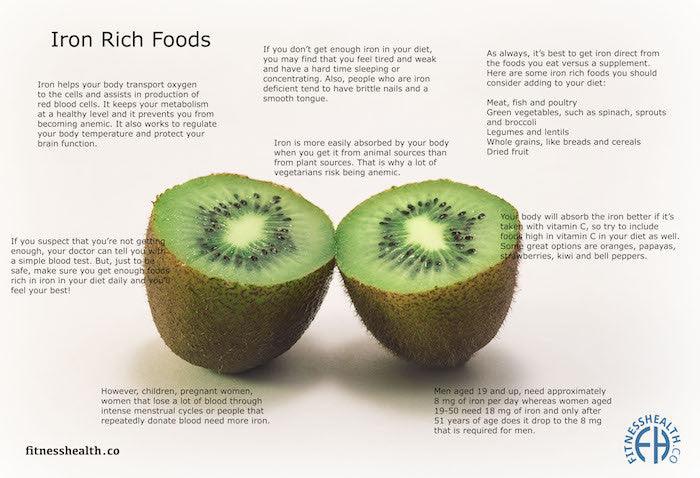Are you looking for foods rich in iron to add to your diet? Would you like to know which ones are highest so you make sure you get enough of this essential nutrient?
Benefits of Iron
Iron helps your body transport oxygen to the cells and assists in production of red blood cells. It keeps your metabolism at a healthy level and it prevents you from becoming anemic. It also works to regulate your body temperature and protect your brain function.
If you don’t get enough iron in your diet, you may find that you feel tired and weak and have a hard time sleeping or concentrating. Also, people who are iron deficient tend to have brittle nails and a smooth tongue.
Foods High in Iron
As always, it’s best to get iron direct from the foods you eat versus a supplement. Here are some iron rich foods you should consider adding to your diet:
Here are some of the top iron-rich foods to consider adding to your diet- Red Meat: Beef, lamb, and pork are excellent sources of highly absorbable heme iron. A 3-ounce serving of cooked lean beef can provide around 2.3 mg of iron.
- Spinach: This leafy green is packed with non-heme iron. A 1-cup serving of cooked spinach contains about 6.4 mg of iron.
- Lentils: Legumes like lentils are a great plant-based source of iron. A 1-cup serving of cooked lentils has around 6.6 mg of iron.
- Fortified Cereals: Many breakfast cereals are fortified with iron. Check the nutrition label, as a serving can provide 18 mg or more of iron.
- Oysters: Just 3 ounces of cooked oysters contain an impressive 7.8 mg of iron.
- Cashews: A 1-ounce serving of cashews has about 1.9 mg of iron.
- Chickpeas: Also known as garbanzo beans, 1 cup of cooked chickpeas has 4.7 mg of iron.
- Tofu: This soy-based protein is a good non-meat option, with 3 ounces providing around 3.6 mg of iron.
Iron Basics
Iron is more easily absorbed by your body when you get it from animal sources than from plant sources. That is why a lot of vegetarians risk being anemic.
Your body will absorb the iron better if it’s taken with vitamin C, so try to include foods high in vitamin C in your diet as well. Some great options are oranges, papayas, strawberries, kiwi and bell peppers.
How much iron do you need?
Men aged 19 and up, need approximately 8 mg of iron per day whereas women aged 19-50 need 18 mg of iron and only after 51 years of age does it drop to the 8 mg that is required for men. However, children, pregnant women, women that lose a lot of blood through intense menstrual cycles or people that repeatedly donate blood need more iron.
If you suspect that you’re not getting enough, your doctor can tell you with a simple blood test. But, just to be safe, make sure you get enough foods rich in iron in your diet daily and you’ll feel your best!










